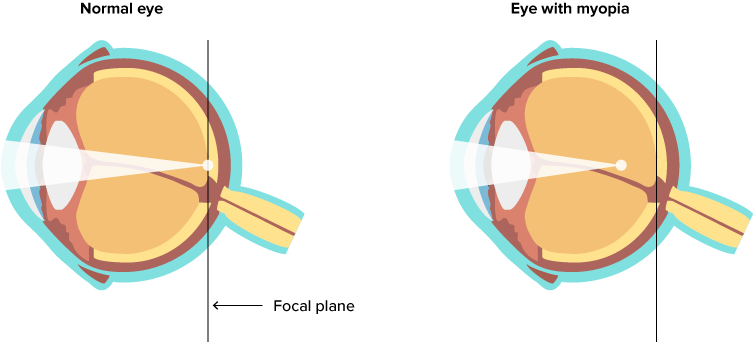Myopia is the term used to describe short-sightedness.
Short sightedness causes distant objects to appear blurred, whilst objects closer, within arms-length, can be seen clearly.
It is a very common eye condition, that affects approximately one in three in the UK.

What causes short sightedness?
Light doesn’t focus on the light sensitive layer called the retina. It focuses an image in front of the retina. This is because the eyeball either grows too long, or the crystalline lens and cornea are too strong and bend the light in front of the retina.
Short sightedness can run in the family. It is also linked to regular focusing on near objects like books, smart phones and electronic tablets. Making sure your child balances their time between playing outside and using computers can help to reduce the risk of short sightedness.
Signs of short sightedness:
- Difficulty focusing on road signs and number plates whilst driving
- Difficulty seeing faces
- Sitting close to the TV
- Headaches or tired eyes
- Regular eye rubbing
- Children – sitting close to the board at school
Treatment of short sightedness
Your optometrist can test your eyes and prescribe glasses or contact lenses specific to your needs. This will usually take the form of a concave, minus powered lens, which allows the image to move onto the retina, enabling you to see clearly.
Other forms of treatment include laser eye surgery, to alter the shape of the front surface of your eyes (the cornea), or an artificial lens implant to replace the lens.

